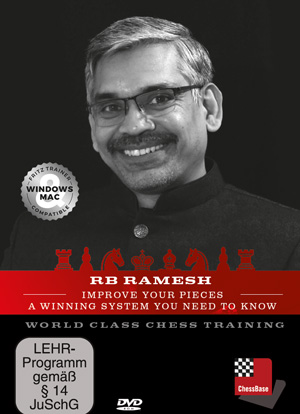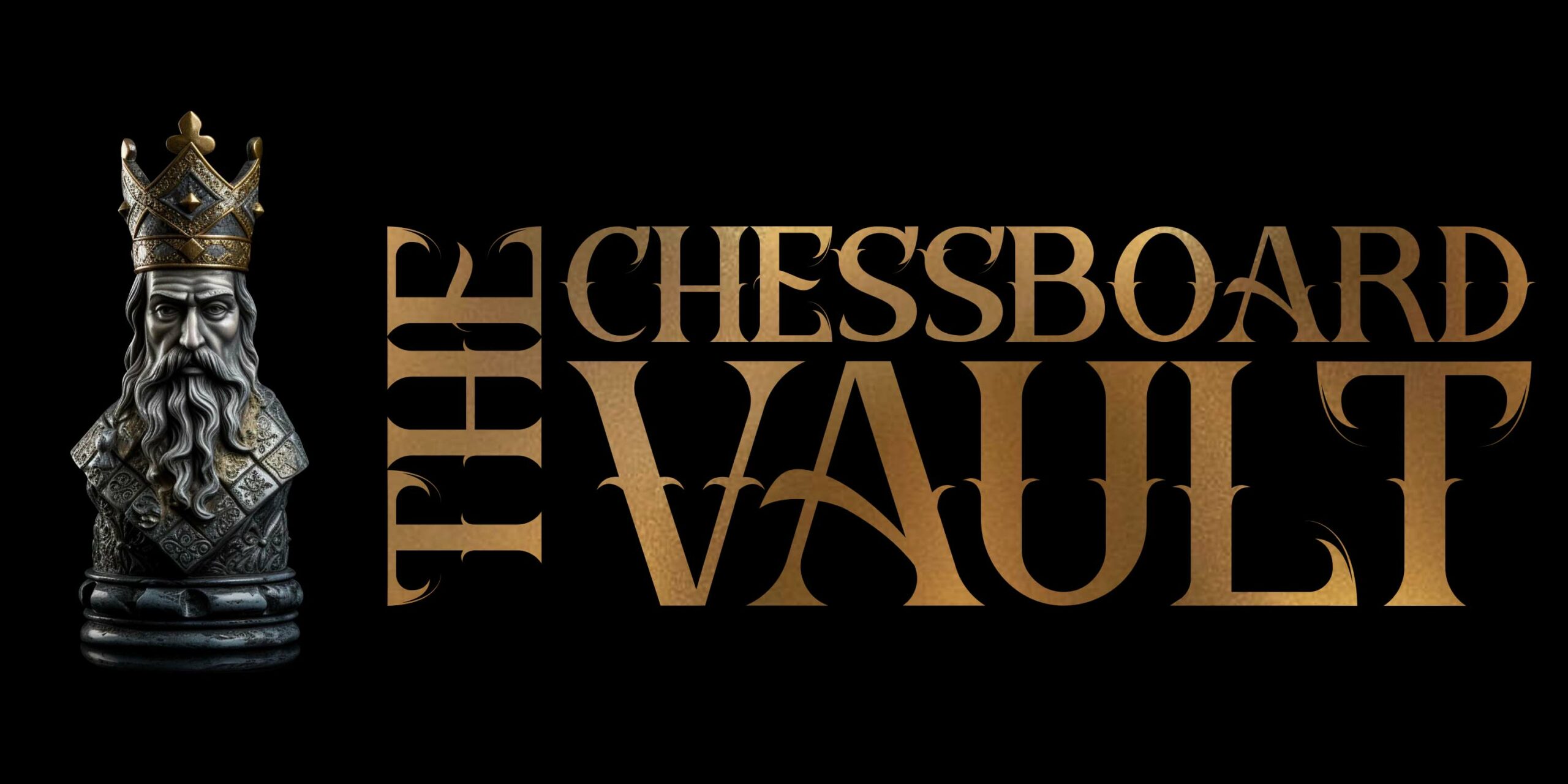The Indian Way
By Harry Schaack
For many decades, there was only one way to learn chess properly: the Soviet method. After the collapse of the USSR and the emergence of powerful software, the influence of chess schools waned. However, as the number of world-class players increased, the Indian training philosophy has become increasingly popular in recent years. One of its leading exponents is RB Ramesh. This GM is one of the most successful junior coaches in the world. Since 2008, he has taught hundreds of pupils in Chennai, dozens of whom have gone on to become world junior champions. His pupils include Harikrishna, Adhiban and Praggnanandhaa. In 2023, Ramesh received the Fide Trainer Award and the Chess.com Book of the Year Award for his book Improve Your Chess Calculation.
Ramesh has produced a new opus for ChessBase with his course Improve your Piecesin which he presents his rather unusual method. Chess has become very concrete thanks to analysis programs, but Ramesh considers the game at a meta-level. The course is more a dialogue about chess and its underlying thought patterns. Ramesh wants to systematically analyze the positional reasons for a particular decision. It’s less about concrete variants than about a fundamental understanding of the game, how to think, the relevant positional aspects and how to arrive at candidate moves and plans on the basis of these observations.
Such fundamental positional analyses can be found elsewhere. But Ramesh takes a holistic approach, critically examining players’ concepts of identity. How does their specific way of thinking channel their particular way of playing chess? When young people build up a repertoire of openings, they tend to do so because they think of themselves as tactical or positional players. We use these labels to manipulate our knowledge. We organize our game according to what we think we are. “And that’s where the problems start,” criticizes Ramesh.
One of his most important principles is to keep an open mind, to remain flexible, not to commit too quickly and not to exclude anything, whether in a particular game or in one’s own chess development.
Piece mobility plays a central role in Ramesh’s teaching. You need to understand when pieces are passive and when they are active. Ramesh illustrates this right from the start with simple diagrams showing that there are different levels of passivity, which he divides into A, B and C. In this way, Ramesh provides a compass that gives an idea of which part needs to be improved first. And he repeatedly shows how to reach the candidate move through a logical process of elimination.
More abstract topics are also covered, such as putting knowledge into practice, the need to understand dynamics and statics, and the fact that most positions are a mixture of the two.
Ramesh’s many analogies, drawn from everyday life, are as entertaining as they are memorable, facilitating the process of learning and understanding. One of his original maxims is: “Learning is only fun when you’re learning something“. Ramesh’s keen sense of didactics is evident in his choice of examples. There is often something surprising and astonishing about them. Sometimes, the first glance is misleading, as in the positional evaluation of the Renet-Jussupow game; or that unexpected move in the Karpov-Schauwecker game.
When replaying and analyzing a game, Ramesh suggests you always ask yourself why precisely such moves were played, and compare your own thinking with that of the players you’re analyzing. For example, you can learn from the best players which positional aspects they prefer. You’ll find that, in modern chess, pawn structure and material are less valued than the play of the pieces and the security of the king.
Ramesh’s course is an impassioned plea for a deeper understanding of positions in an age dominated by computers, where chess is too often seen in terms of concrete variants. Broadening knowledge and changing perspectives are the aims of his training. The great success of Ramesh’s method in the youth sector proves him right. Only a solid understanding of chess can be put into practice.

RB Ramesh,
Improve your Pieces –
A winning system you need to know
ChessBase 2024,
DVD or download
39€90
